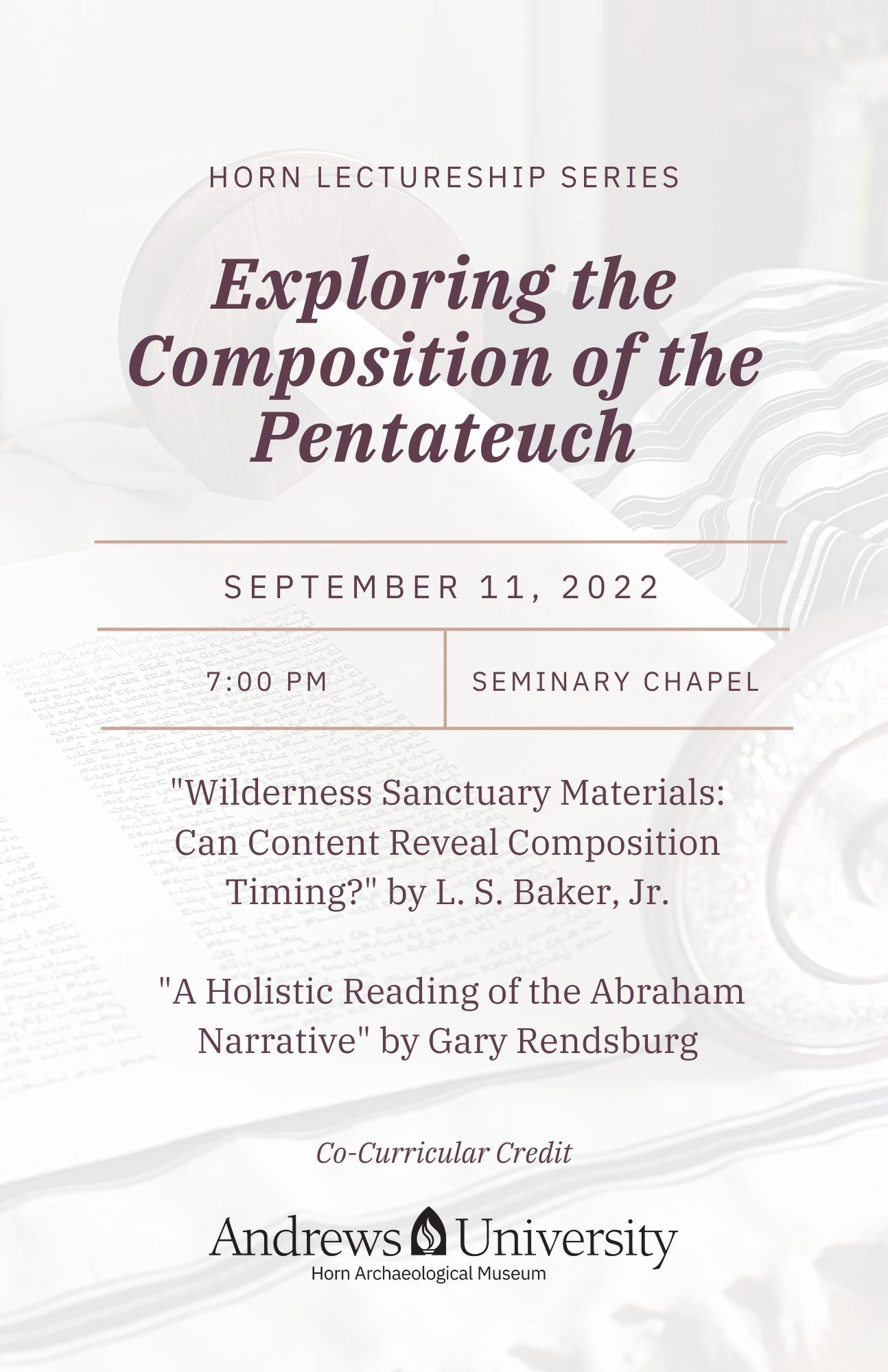Second Millennium BC Cuneiform from the Southern Levant and the Literature of the Pentateuch
Presenter Status
Professor of Old Testament and Semitic Languages
Location
Seminary Chapel
Start Date
4-4-2016 3:00 PM
End Date
4-4-2016 3:50 PM
Session
Comparative Studies
Presentation Abstract
This paper will examine recent discoveries of cuneiform materials from the second millennium BC in the area described in the Pentateuch as promised to Israel by God. It will consider how this material affects views regarding the composition of the Pentateuch. In particular, discussions concerning oral tradition and the absence of literacy will be reviewed and found to be wanting for the ancestor accounts of Genesis 12-37. The important discovery of a cuneiform tablet from Tell er-Rumeideh will be considered in light of its relevance to the question of the necessity of oral tradition for these narratives of Genesis.
Biographical Sketch
Dr. Richard Hess, professor of Old Testament and Semitic languages, joined the faculty in 1997. He is the editor of the Denver Journal, Denver Seminary’s online theological review journal, and has recently retired after ten years as editor of the Bulletin for Biblical Research. He is also the founder and editor of the Bulletin’s Supplement Series and is a member of a dozen scholarly societies.
Dr. Hess earned a PhD from Hebrew Union College, an MDiv and a ThM from Trinity Evangelical Divinity School, and a BA from Wheaton College. He has done postdoctoral research at universities in Chicago, Jerusalem, Cambridge, Sheffield, and Münster, and has held National Endowment for the Humanities, Fulbright, and Tyndale House (Cambridge) postdoctoral fellowships and grants. He was lecturer in Old Testament and Hebrew at International Christian College, Scotland, and Reader in Old Testament at Roehampton University, London. Having lectured at more than one hundred scholarly societies, universities, and colleges, he has recently given invited lectures at SAIACS, Bangalore; Min Zu University, Beijing; Irish Bible Institute, Dublin; Oregon State University, Corvallis; and Denver University.
Dr. Hess is a member of the Committee on Bible Translation for the New International Version. He served as associate editor for the NIV Zondervan Study Bible. Dr. Hess has also worked for the New International Version, the New American Bible, the Holman Standard Christian Bible, the English Standard Version, and The Common English Bible translations of the Old Testament. He is an editor of a series of commentaries on the Septuagint and has translated books of the Septuagint for Logos Bible Software.
Dr. Hess has authored 8 books, including volumes on religion (Israelite Religions: A Biblical and Archaeological Survey), ancient Near Eastern subjects (Amarna Personal Names and Names in the Study of Biblical History), Genesis (Studies in the Personal Names of Genesis 1-11), and commentaries on Leviticus, Joshua, and the Song of Songs. He has edited or co-edited 33 books, most recently Ancient Israel’s History: An Introduction to Issues and Sources (co-editor B. T. Arnold); Reading Scripture Deeply (co-editor R. Richards); Sacred Ritual: A Study of the West Semitic Ritual Calendars in Leviticus 23 and the Akkadian Text Emar 446 (B. C. Babcock); and commentaries on Septuagint texts such as Baruch and the Epistle of Jeremiah: A Commentary Based on the Texts in Codex Vaticanus (S. A. Adams). In addition to several hundred book reviews and dictionary articles, Dr. Hess has published more than 100 scholarly articles in collected essays and journals such as Biblica, Biblical Archaeologist, Bulletin for Biblical Research, Catholic Biblical Quarterly, Themelios,Tyndale Bulletin, Vetus Testamentum, and Zeitschrift für die alttestamentliche Wissenschaft. Current research projects include commentaries on the books of Genesis and Kings, an Introduction to the Old Testament, Israelite Religions, and the study of ancient Near Eastern texts related to the Old Testament.
Second Millennium BC Cuneiform from the Southern Levant and the Literature of the Pentateuch
Seminary Chapel
This paper will examine recent discoveries of cuneiform materials from the second millennium BC in the area described in the Pentateuch as promised to Israel by God. It will consider how this material affects views regarding the composition of the Pentateuch. In particular, discussions concerning oral tradition and the absence of literacy will be reviewed and found to be wanting for the ancestor accounts of Genesis 12-37. The important discovery of a cuneiform tablet from Tell er-Rumeideh will be considered in light of its relevance to the question of the necessity of oral tradition for these narratives of Genesis.




Images